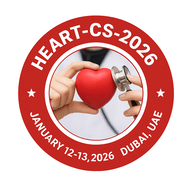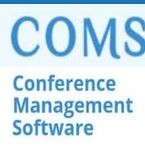Sessions and Tracks
Artificial intelligence has revolutionized the way cardiovascular risk is assessed, moving beyond traditional scoring systems that rely on limited clinical and demographic variables. AI algorithms can analyze extensive datasets that include blood pressure readings, cholesterol levels, lifestyle factors, imaging data, and even genetic information to predict an individual’s risk of developing heart disease. Machine learning models identify subtle patterns and interactions that may not be apparent to human clinicians, offering a more accurate and personalized risk assessment. For instance, these models can detect early signs of atherosclerosis or changes in heart structure that indicate a higher likelihood of future cardiac events. Predictive insights from AI allow healthcare providers to develop tailored preventive strategies, such as lifestyle interventions, pharmacological therapies, or close monitoring of high-risk individuals. This proactive approach can reduce morbidity, prevent hospitalizations, and improve long-term outcomes. Additionally, AI-driven risk prediction tools can be integrated into electronic health records and wearable devices, enabling continuous monitoring and real-time updates to a patient’s risk profile. By combining predictive analytics with personalized care, heart risk prediction using artificial intelligence represents a major advancement in preventive cardiology, empowering both clinicians and patients to take timely and informed actions to protect cardiovascular health.
Arrhythmias, or irregular heart rhythms, are among the leading causes of morbidity and mortality worldwide, ranging from atrial fibrillation to life-threatening ventricular tachycardia. Traditional diagnosis relies on intermittent electrocardiogram (ECG) recordings and manual interpretation, which may miss transient or subtle abnormalities. Artificial intelligence has transformed arrhythmia detection by enabling continuous monitoring and real-time analysis of cardiac electrical activity. Machine learning and deep learning algorithms can process large volumes of ECG data from clinical devices or wearable sensors, identifying abnormal patterns with remarkable accuracy. These algorithms are capable of detecting even brief episodes of arrhythmia that could otherwise go unnoticed, allowing early intervention and reducing the risk of stroke or sudden cardiac death. AI-based arrhythmia detection also facilitates remote monitoring, enabling patients to remain at home while their cardiac activity is continuously analyzed. Alerts generated by AI systems can prompt immediate clinical evaluation, medication adjustments, or other interventions. By improving diagnostic accuracy, reducing time to treatment, and enabling personalized management plans, AI-driven arrhythmia detection enhances patient outcomes, lowers healthcare costs, and represents a critical innovation in modern cardiology.
Cardiac imaging, including echocardiography, computed tomography, and magnetic resonance imaging, is essential for diagnosing heart diseases and guiding treatment. However, interpretation of these images requires specialized expertise and can be time-consuming, with potential for inter-observer variability. Artificial intelligence has emerged as a powerful tool to enhance cardiac imaging analysis by automating measurements, detecting subtle abnormalities, and providing consistent results. Deep learning models can recognize patterns in cardiac structure and function, quantify ventricular volumes, evaluate ejection fraction, and identify tissue damage such as fibrosis or ischemia. AI also supports advanced techniques, such as three-dimensional reconstruction and motion tracking, improving visualization and understanding of complex cardiac anatomy. By integrating imaging data with clinical and demographic information, AI can provide comprehensive insights into a patient’s cardiovascular health, assisting clinicians in making precise diagnoses and formulating optimal treatment strategies. The adoption of AI in cardiac imaging not only improves efficiency and accuracy but also reduces the workload on clinicians, enabling faster decision-making and ultimately contributing to better patient outcomes.
Heart failure is a major public health concern, affecting millions of individuals worldwide and contributing to high rates of hospitalization and mortality. Early detection of worsening heart failure is critical for preventing complications and improving patient quality of life. Digital health platforms equipped with artificial intelligence play a pivotal role in predicting heart failure exacerbations by continuously analyzing patient data, including heart rate, blood pressure, weight, oxygen saturation, and activity levels. Machine learning models can identify patterns that indicate early signs of fluid overload or cardiac dysfunction before clinical symptoms become severe. By generating real-time alerts for patients and healthcare providers, AI systems enable timely adjustments to medications, dietary recommendations, or lifestyle interventions. Remote monitoring also allows patients to remain in their homes while clinicians track their condition, reducing hospital readmissions and healthcare costs. Furthermore, AI-driven predictive analytics can personalize treatment plans by identifying patient-specific risk factors and suggesting tailored interventions. By combining continuous monitoring, predictive modeling, and personalized care, artificial intelligence transforms heart failure management, enhancing both patient outcomes and healthcare efficiency.
The advent of wearable technology has revolutionized the way cardiovascular health is monitored. Devices such as smartwatches, fitness trackers, and implantable monitors collect continuous data on heart rate, rhythm, oxygen saturation, and activity levels. When combined with artificial intelligence, these devices offer unprecedented insights into cardiac health, detecting subtle changes that may indicate emerging heart conditions. AI algorithms analyze this data in real time, identifying abnormal heart rhythms, predicting potential arrhythmias, and providing personalized recommendations for lifestyle and medication adjustments. Wearable heart monitors enable patients to actively participate in managing their health, encouraging adherence to treatment plans and lifestyle modifications. They also provide clinicians with a continuous stream of objective data, improving diagnosis and treatment decisions. Importantly, these devices allow remote monitoring, reducing the need for frequent hospital visits and enabling early interventions for high-risk individuals. By integrating continuous monitoring, real-time analysis, and patient engagement, wearable heart monitors represent a major advancement in preventive cardiology and personalized heart care.
Remote monitoring of cardiac patients has transformed healthcare delivery by allowing clinicians to track vital signs and heart function outside the hospital environment. Artificial intelligence enhances this approach by analyzing continuous data streams from wearable devices, smart sensors, and home monitoring equipment. AI algorithms detect early warning signs of cardiac events, such as heart failure exacerbation, arrhythmias, or hypertension, and alert healthcare providers for timely intervention. Patients benefit from real-time feedback on lifestyle, medication adherence, and symptom management, reducing the risk of complications and hospital readmissions. Telecardiology platforms enable virtual consultations, offering personalized guidance without requiring patients to travel to healthcare facilities. Remote heart monitoring not only improves patient outcomes but also optimizes resource allocation in healthcare systems. By integrating AI-driven predictive analytics with secure data management, clinicians can provide proactive care, tailor treatments to individual patient needs, and enhance the overall efficiency of cardiac healthcare delivery.
Digital twin technology creates virtual representations of a patient’s heart using artificial intelligence and real-time physiological data. These models simulate the cardiovascular system’s structure, function, and response to different interventions, allowing clinicians to predict disease progression and treatment outcomes. Digital twins enable personalized treatment planning by testing multiple therapeutic strategies in a virtual environment before applying them to the patient. For example, they can simulate how a patient with heart failure might respond to medication adjustments or lifestyle changes, providing data-driven guidance for individualized care. Digital twins can also integrate genetic information, imaging data, and wearable sensor outputs, offering a comprehensive view of a patient’s cardiovascular health. By bridging the gap between simulation and clinical decision-making, digital twin technology enhances precision medicine, reduces risks associated with trial-and-error approaches, and supports proactive management of complex cardiac conditions. This innovative approach is poised to transform the future of cardiology, making care more predictive, personalized, and efficient.
Artificial intelligence has made significant strides in predicting myocardial infarctions by analyzing a combination of clinical, biochemical, and imaging data. Traditional risk assessments often rely on static factors, such as age, cholesterol levels, and family history, but AI leverages dynamic, real-time data to provide more accurate predictions. Machine learning algorithms can detect subtle changes in biomarkers, ECG readings, and heart imaging that precede a heart attack, enabling early intervention. Predictive models also incorporate lifestyle factors, comorbidities, and genetic predispositions, allowing for a comprehensive risk assessment. Early detection facilitates timely preventive measures, including medication adjustments, dietary modifications, and targeted monitoring, ultimately reducing morbidity and mortality. AI-driven prediction systems can be integrated into wearable devices or hospital monitoring platforms, providing continuous assessment and actionable alerts for patients and clinicians. By combining precision analytics with proactive care, artificial intelligence enhances the ability to prevent myocardial infarctions and improve long-term cardiovascular outcomes.
Coronary artery disease remains a leading cause of death worldwide, and early detection is critical for effective management. Artificial intelligence enhances diagnostic accuracy by analyzing imaging data such as CT angiography, MRI scans, and intravascular ultrasound alongside clinical and laboratory information. Machine learning algorithms can identify coronary artery blockages, quantify plaque burden, and assess plaque vulnerability, offering a detailed understanding of a patient’s cardiovascular risk. AI systems can also prioritize high-risk patients for intervention, ensuring timely treatment and optimizing healthcare resources. By detecting subtle changes in coronary anatomy that may be missed by conventional analysis, AI supports precision medicine and reduces diagnostic errors. Integration with electronic health records and wearable devices enables continuous risk monitoring, facilitating preventive care strategies and lifestyle modifications. Overall, AI-powered coronary disease detection improves patient outcomes, enhances clinical decision-making, and contributes to a more efficient and personalized approach to cardiac care.
AI-powered virtual assistants and chatbots are revolutionizing patient engagement in cardiovascular care. These intelligent systems provide real-time guidance on medication adherence, lifestyle choices, symptom tracking, and follow-up care. Patients can interact with virtual assistants through smartphones, tablets, or wearable devices, receiving personalized recommendations based on their health data. Virtual assistants also analyze historical and real-time patient information to detect potential warning signs, prompting timely clinical consultation when necessary. For clinicians, these tools reduce administrative workload, allowing them to focus on critical care decisions while ensuring that patients remain actively engaged in managing their cardiovascular health. Virtual heart assistants enhance accessibility to healthcare, particularly for patients in remote or underserved regions, and promote continuous, data-driven monitoring. By integrating AI with digital communication channels, these systems provide a scalable, cost-effective solution for personalized cardiac care and patient empowerment.
The increasing adoption of digital health platforms and wearable devices in cardiology has led to an exponential growth of patient data. Ensuring the security, integrity, and privacy of this data is critical for maintaining trust and compliance with healthcare regulations. Blockchain technology offers a decentralized and immutable framework for managing cardiac health data. By encrypting information and maintaining a transparent ledger, blockchain prevents unauthorized access and reduces the risk of data breaches. Patients can securely share their medical records with healthcare providers, researchers, or insurance companies while retaining control over who can access their information. AI can be integrated with blockchain systems to analyze encrypted data, providing insights for predictive analytics, personalized treatment plans, and clinical research without compromising privacy. This combination of AI and blockchain enhances interoperability across healthcare systems, facilitates seamless exchange of cardiac data, and ensures secure, patient-centered management of sensitive information. By adopting secure digital frameworks, healthcare organizations can protect patient confidentiality, improve data accuracy, and leverage technology for advanced cardiac care.
Artificial intelligence is transforming the drug discovery process for cardiovascular diseases, significantly reducing the time and cost required to develop new therapies. Traditional drug development is lengthy and resource-intensive, often taking years to move from research to clinical trials. AI algorithms can analyze large datasets of molecular structures, biological interactions, and clinical outcomes to identify potential therapeutic compounds. Machine learning models predict the efficacy, safety, and pharmacokinetics of candidate drugs, helping researchers prioritize the most promising options. AI can also simulate drug interactions, reducing the likelihood of adverse effects in patients with complex cardiac conditions. By integrating patient-specific genetic and clinical data, AI enables precision medicine approaches that tailor therapies to individual needs. This technology has accelerated the discovery of novel drugs for conditions such as heart failure, arrhythmias, and coronary artery disease. Additionally, AI aids in repurposing existing medications, identifying new indications for drugs that are already approved, which can save valuable time in bringing treatments to patients. Overall, AI-driven drug discovery enhances efficiency, reduces costs, and supports the development of safer, more effective cardiovascular therapies.
Smart implantable devices, including pacemakers, defibrillators, and cardiac monitors, represent a significant advancement in personalized cardiovascular care. Unlike traditional devices, these smart implants are equipped with sensors and artificial intelligence algorithms that continuously monitor cardiac activity and respond dynamically to physiological changes. For example, a smart pacemaker can adjust pacing based on heart rate variability, while a defibrillator can predict and prevent dangerous arrhythmias before they become life-threatening. Data collected by these devices can be transmitted remotely to healthcare providers, enabling real-time monitoring and timely interventions. AI analysis of this data allows clinicians to optimize therapy, detect complications early, and make informed decisions about patient management. Smart implantable devices also improve patient quality of life by reducing hospital visits and providing proactive care. By combining intelligent sensing, adaptive therapy, and remote monitoring, these devices exemplify how digital health and artificial intelligence are revolutionizing the management of complex cardiac conditions.
Digital health applications focused on cardiovascular wellness have become essential tools for preventive care. AI-powered apps monitor physical activity, diet, sleep patterns, stress levels, and vital signs to provide personalized recommendations for heart health. These apps leverage machine learning algorithms to analyze user behavior, identify risk factors, and offer tailored interventions such as exercise routines, nutrition plans, and stress management techniques. Integration with wearable devices allows continuous data collection, providing users and clinicians with actionable insights. AI-driven reminders and motivational prompts help improve adherence to lifestyle modifications, medication schedules, and regular checkups. Additionally, these applications can detect early warning signs of cardiovascular issues by analyzing patterns in vital signs and behavioral data, prompting timely medical consultation. By empowering individuals to take an active role in managing their heart health, lifestyle health apps enhance patient engagement, promote preventive care, and contribute to reducing the incidence of heart disease at a population level.
Stroke is a major complication associated with cardiovascular disease, and early identification of high-risk individuals is critical for prevention. Artificial intelligence systems assess stroke risk by analyzing heart rhythm patterns, blood pressure variability, cholesterol levels, glucose control, lifestyle factors, and genetic predispositions. Machine learning models can identify subtle warning signs that may be overlooked in traditional assessments, such as silent atrial fibrillation or minor vascular anomalies. AI-driven platforms integrate data from wearables, electronic health records, and clinical tests to provide a comprehensive, individualized risk profile. Timely detection enables clinicians to implement preventive measures, including anticoagulant therapy, lifestyle modification, or close monitoring. Continuous monitoring and predictive analytics allow for dynamic assessment, where risk levels are updated based on real-time data. This proactive approach reduces the incidence of stroke, improves patient outcomes, and supports evidence-based cardiovascular care. By combining precision analytics with continuous monitoring, AI significantly enhances the ability to prevent strokes in cardiac patients.
Monitoring blood pressure is a fundamental aspect of cardiovascular health management. Traditional clinic-based measurements often fail to capture fluctuations that occur throughout the day. Smart blood pressure monitoring devices, including wearable sensors and home-based monitors, enable continuous tracking of blood pressure and heart rate in daily life. These devices provide detailed insights into blood pressure trends, helping clinicians detect hypertension, hypotension, or sudden changes that may signal cardiac risk. Continuous monitoring allows for timely interventions, such as medication adjustments, dietary changes, and lifestyle modifications, preventing long-term complications. Patients benefit from immediate feedback and greater awareness of their cardiovascular health, promoting proactive management. Smart monitoring systems also improve communication between patients and healthcare providers, as data can be securely shared for remote assessment and personalized care planning. Overall, smart blood pressure monitoring enhances preventive care, reduces hospital visits, and empowers patients to actively participate in managing their heart health.
Cardiac rehabilitation is essential for patients recovering from heart attacks, surgeries, or chronic heart conditions. Digital cardiac rehabilitation programs provide structured exercise routines, educational resources, dietary guidance, and medication reminders through online platforms or mobile applications. Patients can follow personalized recovery plans while receiving continuous feedback on progress. These programs promote adherence to lifestyle modifications and ensure that patients remain active participants in their recovery. Remote monitoring tools enable healthcare providers to track exercise performance, heart rate, and other vital signs, adjusting rehabilitation plans based on real-time data. Digital rehabilitation improves accessibility, particularly for patients in remote or underserved areas, and reduces the burden of frequent hospital visits. By integrating technology into cardiac recovery, these programs enhance patient engagement, accelerate recovery, and support long-term cardiovascular health.
The effective management of cardiovascular diseases requires comprehensive analysis of clinical data, including patient history, laboratory results, imaging studies, and lifestyle information. Modern digital platforms enable efficient collection, storage, and interpretation of these datasets, supporting informed clinical decision-making. By analyzing trends, correlations, and risk factors, healthcare providers can identify early signs of cardiac complications and personalize treatment plans. Continuous monitoring and periodic evaluation of clinical data allow for timely interventions, preventing disease progression and reducing hospitalizations. Integrated digital systems also facilitate communication among multidisciplinary care teams, ensuring coordinated and consistent management. Overall, systematic clinical data analysis enhances diagnostic accuracy, supports preventive care, and promotes evidence-based approaches to managing cardiovascular health.
Patients with diabetes face an increased risk of developing cardiovascular complications, including heart failure, coronary artery disease, and arrhythmias. Comprehensive management of diabetes involves monitoring blood glucose, cholesterol, blood pressure, and lifestyle factors, while providing preventive care for cardiovascular health. Modern health platforms and wearable devices enable continuous tracking of key metrics, allowing healthcare providers to detect early warning signs of heart disease. Personalized care plans can include dietary adjustments, physical activity programs, medication optimization, and lifestyle interventions. Education and engagement are also crucial, empowering patients to take an active role in managing both diabetes and heart health. By integrating regular monitoring, preventive strategies, and patient-centered guidance, healthcare systems can significantly reduce cardiovascular complications in diabetic populations, improving quality of life and long-term outcomes.
Rapid response in cardiac emergencies is critical to saving lives and minimizing complications. Digital health technologies enhance emergency care by enabling real-time communication, data sharing, and remote monitoring. Emergency response systems can integrate information from ambulances, wearable devices, and hospital networks to provide clinicians with immediate access to vital signs, medical history, and current condition. This allows healthcare teams to triage patients effectively, allocate resources efficiently, and initiate treatment promptly upon arrival. Public access to automated external defibrillators, along with education on emergency cardiac procedures, further improves survival rates. Smart technologies and coordinated emergency response protocols reduce treatment delays, enhance decision-making, and ensure timely intervention for heart attack, cardiac arrest, or other urgent cardiovascular conditions. Overall, these systems strengthen the entire continuum of care, from prehospital management to in-hospital treatment, improving outcomes for patients experiencing cardiac emergencies.
Cardiac telemedicine has emerged as a vital solution for delivering cardiovascular care remotely. Through digital platforms, patients can consult cardiologists, share health data, and receive follow-up care without visiting clinics or hospitals. Telemedicine enables continuous monitoring of vital signs, symptoms, and medication adherence, improving management of chronic conditions like heart failure, arrhythmias, and hypertension. Clinicians can review patient data in real time, adjust treatment plans, and provide guidance on lifestyle interventions. Telemedicine also enhances access for patients in rural or underserved regions, reducing travel burdens and healthcare costs. By integrating telecommunication technologies with health monitoring devices, cardiac telemedicine ensures timely interventions, strengthens patient engagement, and improves outcomes for cardiovascular patients.
Heart rhythm monitoring devices, including portable electrocardiograms and wearable sensors, allow continuous tracking of cardiac electrical activity. These devices detect irregular heartbeats, conduction abnormalities, and early signs of arrhythmias, which can help prevent complications such as stroke or heart failure. By capturing data in real time, clinicians can make informed decisions about treatment strategies, medication adjustments, or interventions. Continuous monitoring also enhances patient awareness of their cardiac condition, encouraging adherence to therapy and lifestyle modifications. Modern rhythm monitoring devices are compact, user-friendly, and can transmit data securely to healthcare providers, supporting proactive management of cardiac health.
Lifestyle programs focusing on heart health are crucial for the prevention and management of cardiovascular diseases. These programs combine physical activity, nutrition, stress management, and behavior modification to reduce risk factors like obesity, hypertension, and high cholesterol. Digital platforms allow patients to track their progress, set goals, and receive personalized recommendations. Group or community-based programs provide social support and accountability, enhancing motivation. Integrating wearable devices and monitoring tools ensures continuous feedback, helping participants adjust activities or habits to optimize cardiovascular benefits. Structured lifestyle programs empower patients to take control of their heart health, reduce disease risk, and maintain long-term wellness.
Education is a cornerstone of cardiovascular prevention and management. Digital health platforms provide patients with access to evidence-based information about heart disease, lifestyle interventions, medications, and self-monitoring techniques. Interactive tools, videos, quizzes, and personalized learning modules increase patient engagement and understanding. Platforms may also include features for tracking progress, reminders for medications or appointments, and communication channels with healthcare providers. Empowering patients with knowledge enables informed decision-making, encourages adherence to treatment plans, and promotes healthier behaviors. Heart health education platforms are particularly valuable in preventive cardiology, improving awareness and outcomes at the population level.
Effective management of heart failure is critical to improving patient outcomes and quality of life. Modern approaches involve continuous monitoring of vital signs such as heart rate, blood pressure, oxygen saturation, and weight to detect early signs of fluid retention or worsening cardiac function. Digital health platforms and wearable devices allow patients to track symptoms and share data with healthcare providers in real time, enabling timely adjustments to medications, diet, and physical activity. Comprehensive heart failure management programs also include patient education on recognizing warning signs, adherence to prescribed therapies, and lifestyle modifications. Coordinated care between cardiologists, primary care providers, and rehabilitation specialists ensures personalized treatment plans and reduces hospital readmissions. By integrating continuous monitoring, patient engagement, and structured interventions, heart failure management supports proactive care and improves long-term cardiovascular health.























